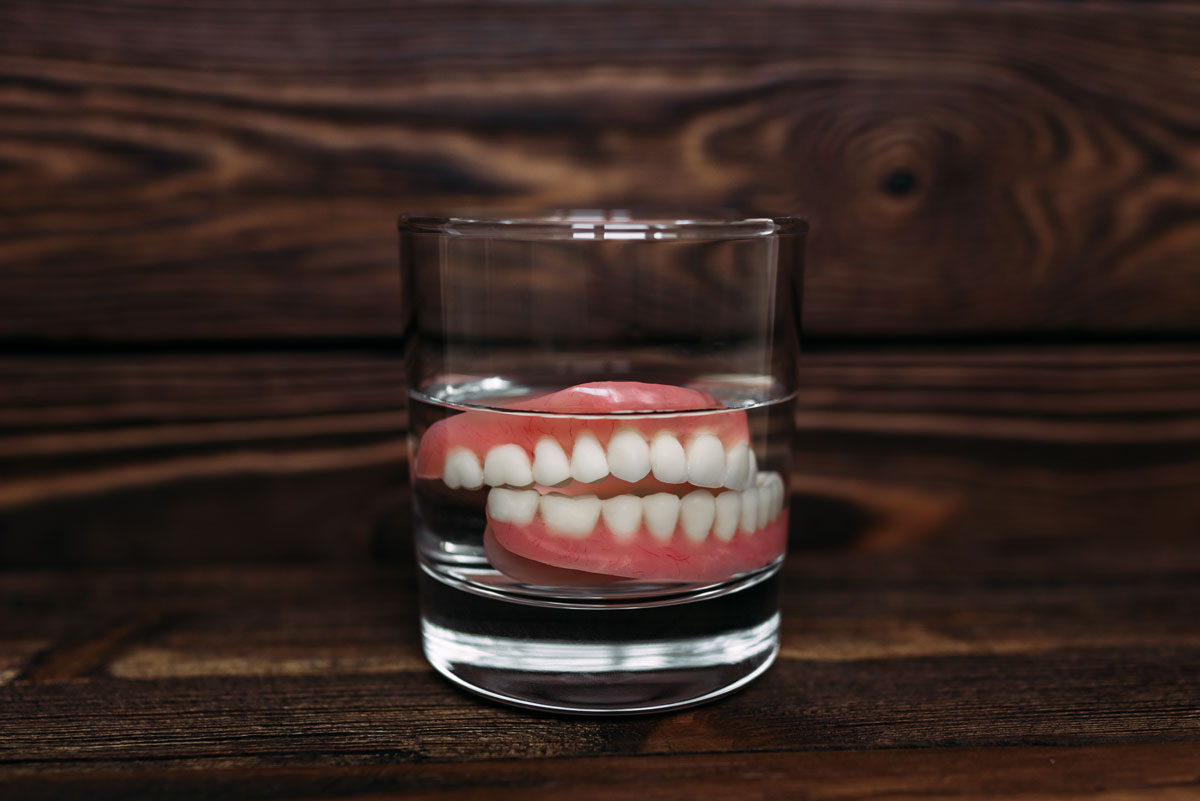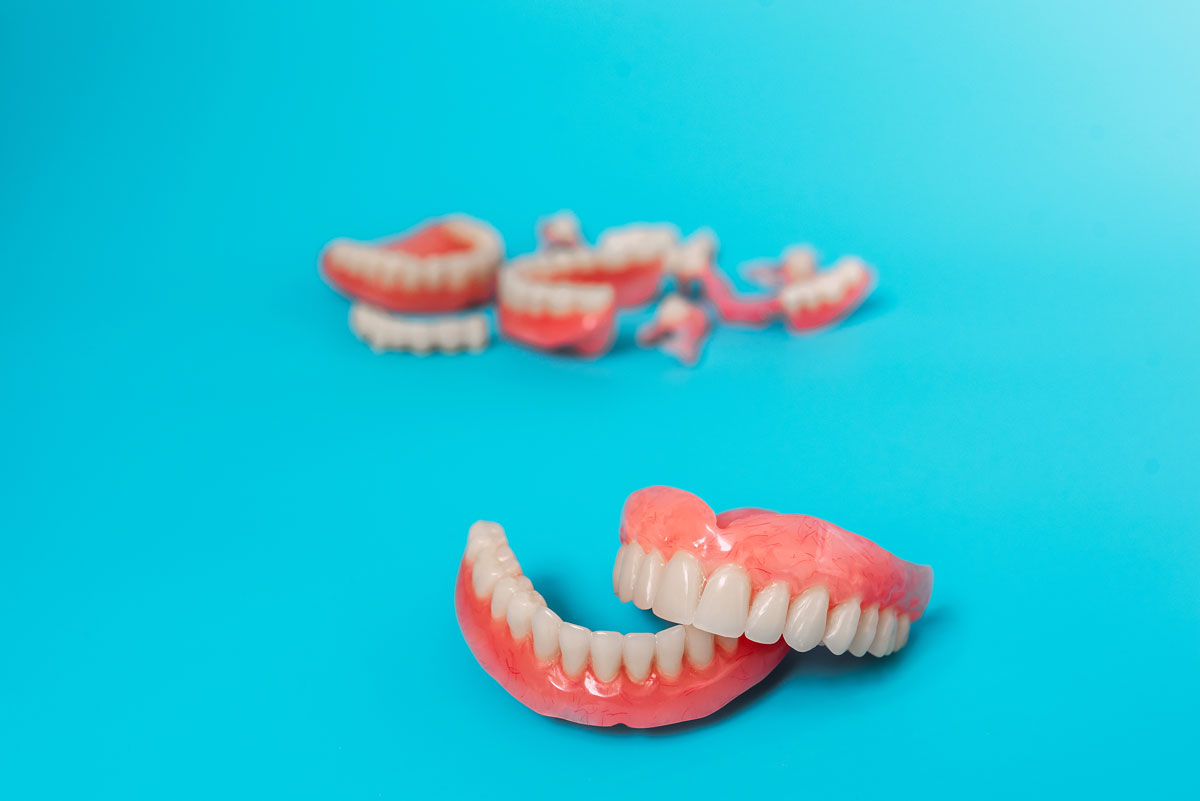When it comes to dental health, having a full set of functioning teeth is crucial. Missing teeth can largely affect your smile and your ability to eat and speak properly. Dentures provide a reliable solution for replacing missing teeth. Choosing between Partial and Full Dentures in Uncasville, CT, can be a significant decision. Understanding the differences and benefits of each type will help you make the right choice for your oral health needs.
What are Full Dentures?
Dentures that replace every tooth in both the upper or lower jaw are known as complete or full dentures. Made of acrylic, they fit over the gums and preserve the function and appearance of natural teeth. Full dentures enable proper chewing and speech while supporting facial structure, ensuring a natural look and improved quality of life for individuals who have lost most or all of their teeth.
- Complete Coverage: Full dentures provide a complete replacement for missing teeth, restoring both aesthetics and function.
- Custom Fit: These dentures are custom-made to fit the unique shape of your gums and mouth, ensuring a secure fit.
- Restored Function: They enable individuals to chew food properly and speak clearly, which can greatly improve their quality of life.
What are Partial Dentures?
Dental appliances called partial dentures are made to fill in the spaces created by a few lost teeth. They contain replacement teeth that are attached to a gum-colored base and kept in place by metal clasps that anchor to the remaining natural teeth, providing both functional and aesthetic benefits.
- Preservation of Natural Teeth: Partial dentures allow you to keep your remaining healthy teeth, which is beneficial for oral health.
- Support and Stability: The remaining natural teeth provide additional support and stability for the partial dentures.
- Custom Design: Each partial denture is uniquely designed to match your existing teeth, guaranteeing a natural look and comfortable fit.
Benefits of Full Dentures
Full dentures offer a solution for those who have lost all their teeth, providing a full set of replacement teeth.
- Restored Appearance: They help maintain the natural shape of your face and enhance your smile.
- Functionality: Full dentures allow you to eat various foods, contributing to better nutrition.
- Boosted Confidence: A complete set of teeth can improve your self-esteem and willingness to engage in social activities.
With full dentures, you can regain many of the functions of natural teeth.
- Chewing Efficiency: Full dentures restore the ability to chew food properly, making it easier to enjoy a balanced diet.
- Clear Speech: They help pronounce words more clearly, reducing speech issues caused by missing teeth.
- Facial Support: Full dentures support the lips and cheeks, preventing the sunken appearance that can occur with tooth loss.
Full dentures can greatly enhance your appearance.
- Natural Look: Modern dentures are designed to look like natural teeth, providing a more attractive smile.
- Facial Structure: They help maintain the structure of your face, preventing the sagging that can occur with missing teeth.
- Customizable: Dentures can be tailored to match your natural tooth color and shape, thus ensuring a seamless appearance.
Benefits of Partial Dentures
One of the major benefits of partial dentures is that they allow you to keep your remaining natural teeth.
- Reduced Bone Loss: Keeping natural teeth helps maintain the jawbone and prevent bone loss.
- Oral Health: Retaining natural teeth supports overall oral health and function.
- Natural Feel: Partial dentures, anchored by natural teeth, often feel more stable and natural.
Partial dentures are comparatively more affordable option than full dentures.
- Lower Cost: Partial dentures are often less expensive because they require fewer materials and a less extensive fitting process.
- Affordable Maintenance: The cost of maintaining partial dentures is typically lower, as they require less frequent adjustments.
- Insurance Coverage: Many dental insurance plans offer better coverage for partial dentures.
Partial dentures can be easier to adapt to than full dentures.
- Comfort: Since they use existing teeth for support, partial dentures often feel more comfortable and secure.
- Less Invasive: The fitting process for partial dentures is generally less invasive than for full dentures.
- Quick Adjustment: Many people find it easier to adjust to partial dentures because they work alongside their natural teeth.
Factors to Consider
Your current oral health is a major factor in deciding between full and partial dentures.
- Remaining Teeth: If several healthy teeth remain, partial dentures may be more suitable.
- Gum Health: Healthy gums are important for properly fitting any dentures.
- Bone Structure: The condition of your jawbone can largely affect the comfort and fit of your dentures.
Cost is an important consideration when choosing between full and partial dentures.
- Initial Cost: Full dentures generally cost more upfront due to the materials and fitting process.
- Long-Term Cost: Consider the long-term maintenance costs, adjustments, and potential replacements.
- Insurance: Do check your dental insurance policy to see what is covered for both dentures.
Your lifestyle and comfort preferences should play a role in your decision.
- Daily Routine: Consider how dentures will fit into your daily routine, including removal and cleaning.
- Comfort Level: Think about which type of denture you feel most comfortable with.
- Activity Level: Your level of physical activity might influence your choice, as some dentures may provide more stability during movement.
Maintenance and Care
Proper maintenance of full dentures is crucial for their longevity and your oral health.
- Daily Cleaning: Brush dentures daily with a soft-bristle brush and non-abrasive cleanser to remove food particles and plaque.
- Rinsing: Rinse dentures after meals to remove debris and prevent staining.
- Soaking: Dentures should be soaked in a specific denture cleaning solution for the entire night to stay moist and in shape.
- Regular Check-Ups: See your dentist frequently to adjust your dentures as needed and check for fit and condition.
Partial dentures require specific care to keep them clean and functional.
- After Meals: Remove and rinse partial dentures after meals to prevent food buildup and staining.
- Brushing: Brush partial dentures daily with a soft-bristle brush to remove plaque and food particles.
- Natural Teeth Care: Maintain excellent oral hygiene for your natural teeth to stop decay and gum disease, which can affect the fit of your partial dentures.
- Regular Visits: Schedule regular dental check-ups at a denture clinic near you to ensure your natural teeth and dentures are in good condition.
Conclusion
Several variables, such as lifestyle, finances, and oral health, influence the decision between complete and partial dentures. Both options have unique benefits and can improve your quality of life. It’s essential to consult with a dentist to decide the best selection for your specific needs. If you’re considering dentures near you, schedule a consultation with Uncasville Dental Associates today. We will guide you in choosing the best option for your needs.
Visit Our Office
Montville, CT
907 Norwich-New London Turnpike Suite C, Montville, CT 06382
Email: Uncasvilledentalassociates1@gmail.com
Request An AppointmentOffice Hours
- MON8:00 am - 5:30 pm
- TUE8:00 am - 5:30 pm
- WED8:00 am - 5:30 pm
- THU8:00 am - 5:30 pm
- FRI8:00 am - 5:30 pm
- SAT8:00 am - 1:30 pm
- SUNClosed






